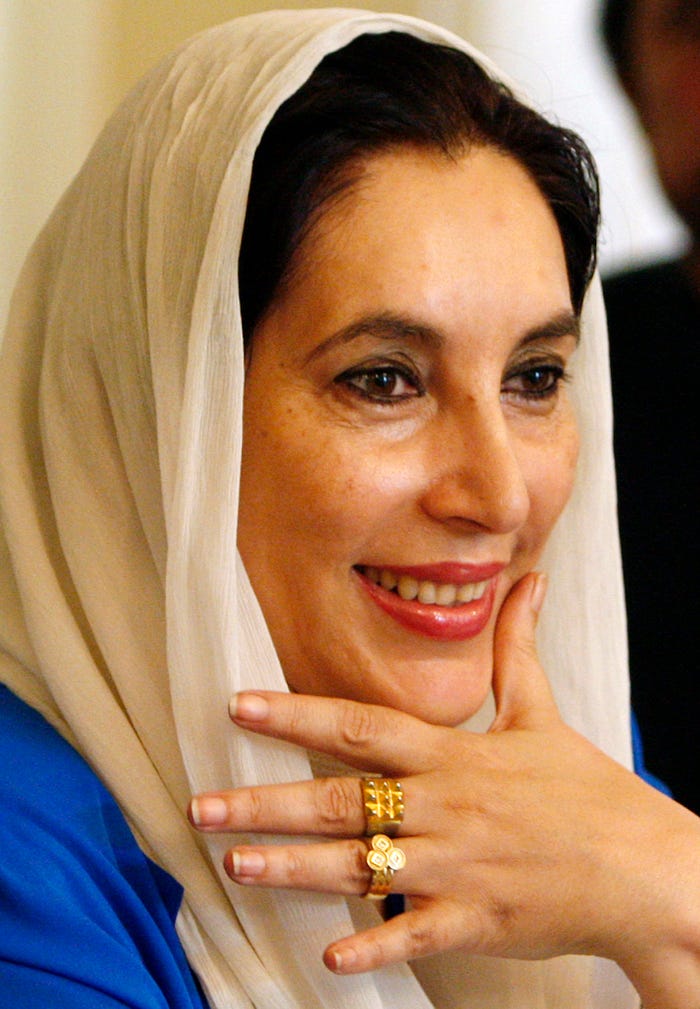An Inspiration: Benazir Bhutto

Benazir Bhutto was the first female Prime Minister in Pakistan, and also the first female leader of a Muslim-majority country.
She was born in 1953 in Pakistan to politician and Prime Minister (1971–1977) Zulfikar Ali Bhutto, a popular leader who was executed by the military after being overthrown. She received her first degree from Harvard University and her second degree from the University of Oxford. After her father’s execution, she became the head of her father’s political party, Pakistan’s Peoples Party (PPP), whose ideology includes social democracy, Islamic socialism, and progressivism. She was ideologically a liberal and a secularist. Benazir became prime minister in 1988 and won the largest single bloc of seats in parliament. After her term she was exiled from Pakistan on basis of charges of corruption placed against her and her husband. During this time, the government ruled that Prime Ministers could not serve more than two terms.
It is important to emphasize that Benazir Bhutto was the first democratically elected (a truer democracy at that, unlike Iran or Russia’s “democracy”) female in a Muslim-majority country. She had intentions to participate in the 2008 general elections, but was unfortunately assassinated in 2007. Not only was her father executed, but her family claimed that one of her brothers was poisoned (no charged were filed) while another died in gun battle with police. She married Asif Ali Zardari (who served as president of Pakistan after Benazir’s assassination, as well as the leader of the PPP). They had one son and two daughters. Benazir had an attempt made on her life after her return from exile some time in November (she was given amnesty on her corruption charges), but survived, only to be killed a month later when an assassin fired shots off and subsequently blew himself up. The Bhuttos are/were seen as too radical; she was the first democratically elected women in the Middle East, while her father before her was the first democratically elected Prime Minister of Pakistan.
Some of her policies were related to human rights (protections for minorities, women, and children, universal female literacy, and encouragement of non-governmental organizations as watchdogs for abuses) and education (free textbooks, promoted libraries, access to the internet for information highway with optional learning in English, and an increase in the education budget). She was a child of privilege and used that privilege as an adult to gain access to the government to dismantle conservative chains on society (like those preventing even educated women from doing anything other than running a household). She worked to end prejudice against minority ethnic groups. She was able to create a platform that took into account the feeling of the various peoples of Pakistan and was able to hold the government and society together during rather tumultuous times for the rest of the Middle East.
In 2013, Musharraf (a general who was President when Benazir Bhutto was assassinated) was placed under house arrest due to accusations of him ordering or at least having a part in Benazir’s assassination, and was charged with not providing enough security. The case, however, received a major setback when the lead prosecutor was murdered on his way to a hearing regarding Musharraf, which happened to be a few days before general elections, indicating the killing was politically situated.
